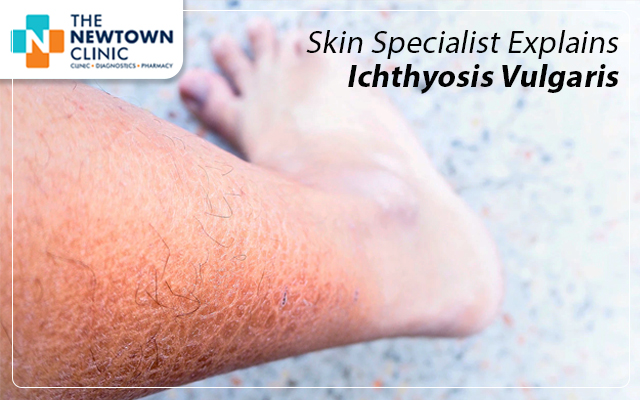Ichthyosis vulgaris is an inherited skin disorder in which dead skin cells accumulate on the skin's surface as thick, dry scales, says the best dermatologist in Kolkata.
Ichthyosis vulgaris scales, also known as fish scale disease or fish skin disease, can be present at birth but usually appear during early childhood. Mild cases of ichthyosis vulgaris can go undetected because they are mistaken for extremely dry skin.
The majority of ichthyosis vulgaris cases are mild, but some are severe. Other skin diseases, such as eczema's allergic skin conditions, are sometimes linked to ichthyosis vulgaris. There is no cure for this disease and treatments aim to manage the condition, says the skin specialist in Kolkata.
Causes
Ichthyosis vulgaris is frequently caused by a genetic mutation passed down from one or both parents. Children who inherit a defective gene from only one parent suffer from a milder form of the disease. Those who inherit two faulty genes develop a more severe form of ichthyosis vulgaris. People with the inherited form of the disorder have normal skin at birth but develop scaling and roughness during their first few years of life.
If genetic abnormalities do not cause ichthyosis, it is referred to as acquired ichthyosis. It is frequently linked to other diseases such as cancer, thyroid disease, or HIV/AIDS, says the dermatologist in Salt Lake.
Symptoms
Ichthyosis vulgaris slows the natural shedding of your skin. This results in a chronic, excessive protein build-up in the skin's upper layer. Among the symptoms are:
• Scaly, dry skin
• Scales that are white, grey, or brown, depending on skin colour
• Extensive, painful skin cracks
Scales typically appear on your elbows and lower legs, and they can be particularly thick and dark over your shins. The majority of cases of ichthyosis vulgaris are mild, but some are severe. The severity of symptoms can vary greatly between family members with the condition, says the skin doctor in Salt Lake.
In cold, dry environments, symptoms tend to worsen or become more pronounced, whereas symptoms tend to improve or even resolve in warm, humid climates.
When should you see a doctor?
Consult your family doctor or a dermatologist if you suspect you or your child has ichthyosis vulgaris. By examining the characteristic scales, they can diagnose the condition.
Also, if the symptoms worsen or do not improve with self-care, seek medical attention, says the skin specialist in Kolkata.




0 Comments